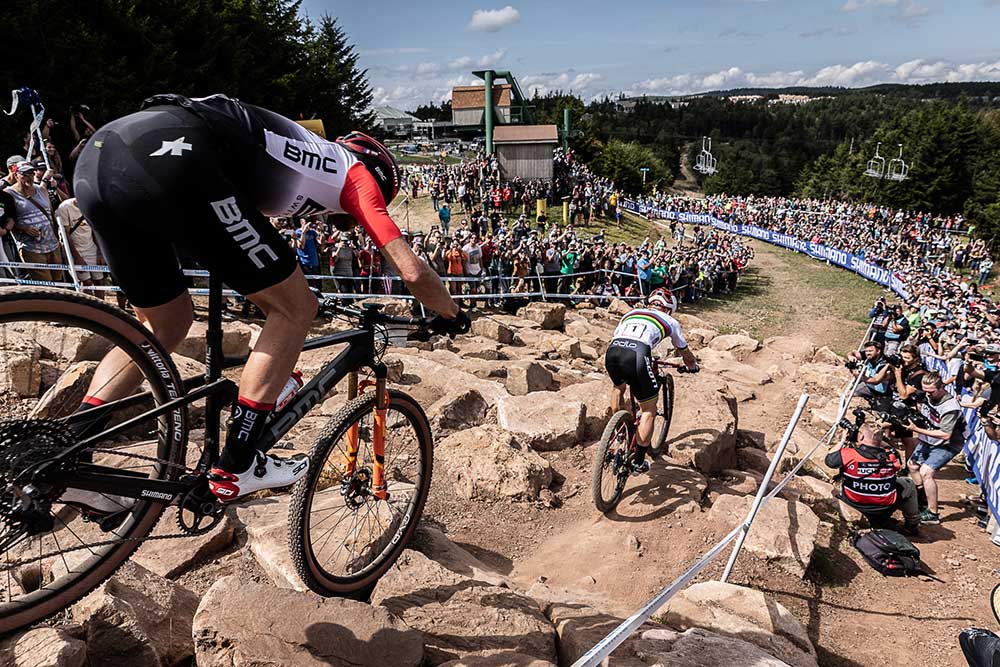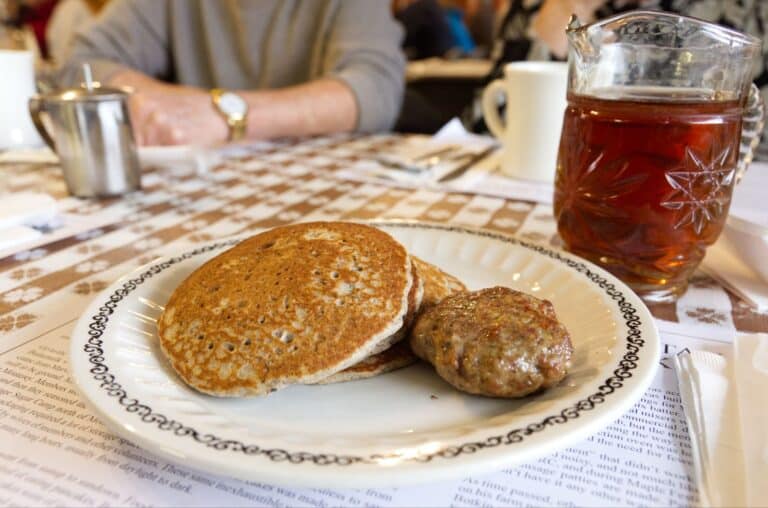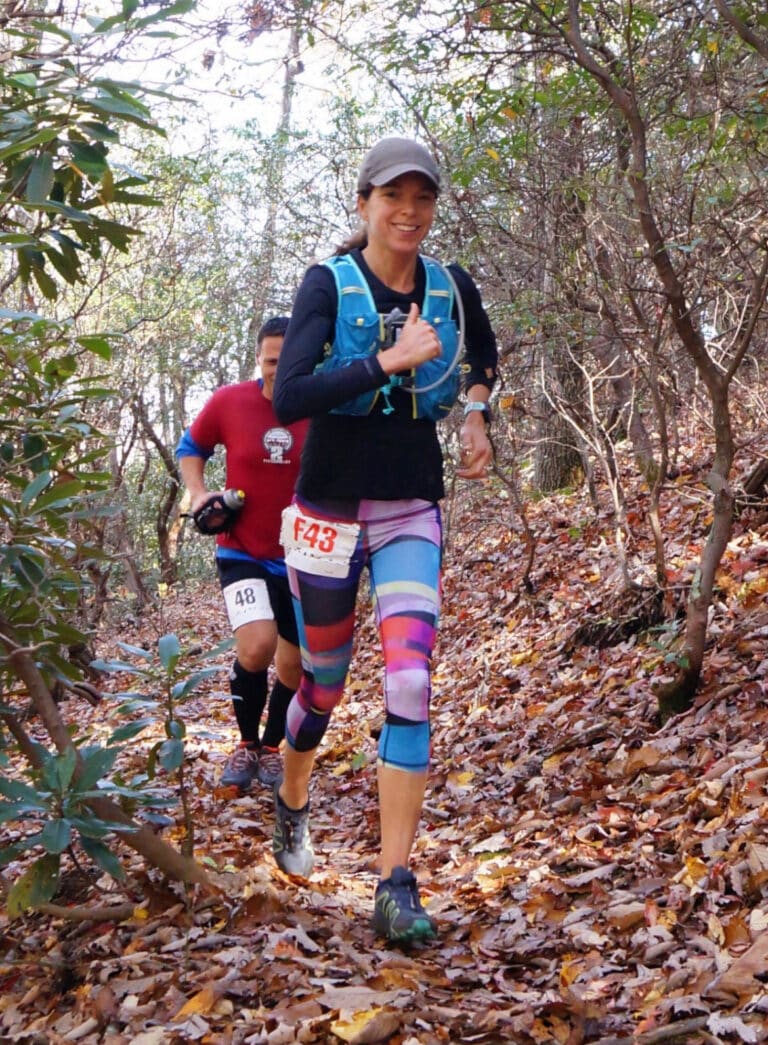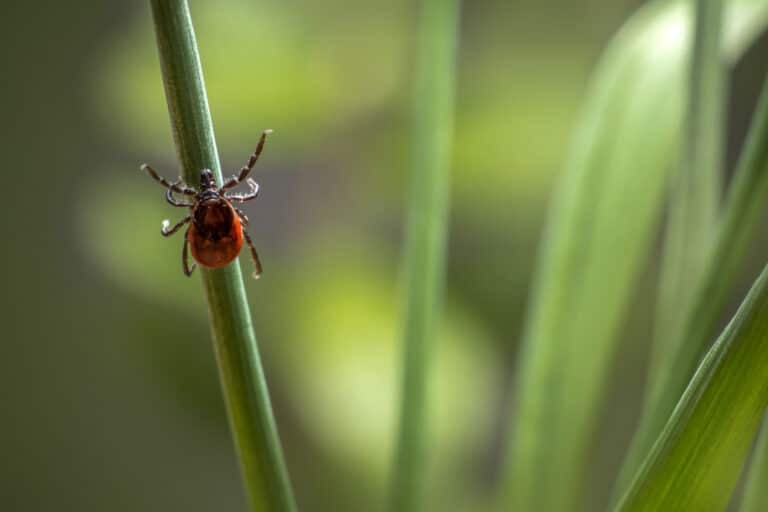The biggest event in mountain biking returned to American soil this weekend at Snowshoe Resort.
Mother Nature was uncharacteristically cooperative this weekend at the Union Cycliste Internationale (UCI) Mountain Bike World Cup finals at Snowshoe Mountain. The skies were cloudy but never stormy. The temperature was warm but breezy. And the trails were dry (dare I say, dusty?), hardly the greasy course that racers had been warned about.
Yet even with perfect conditions, the weekend served up a heaping plate of drama for the tenth and final race in the World Cup series. For two-time downhill, national champion Neko Mulally—whose downhill racing career started at Snowshoe—the final World Cup was over before it even started. Mulally broke his fibula during a training ride on Thursday and was forced to watch the World Cup in his soft cast from the sidelines.
“Snowshoe is one of the first places I started mountain biking when I was a kid. It feels like home,” Mulally said after the incident. “The medical people almost cried when I came in because they knew who I was. It’s just a bummer, but it’s nice that people care that much. I’m just disappointed I wasn’t able to get out there and show what I can do.”
Though Mulally was not able to prove his finesse on Snowshoe’s demanding track, American rider Charlie Harrison did represent the stars and stripes on the podium, eeking out a third-place finish amid a stacked field. Harrison and North Carolina rider Luca Shaw finished 19th and 20th respectively in the overall series.
On Sunday, all eyes were on the elite women’s cross-country race, where American rider Kate Courtney was sitting in second place overall, 73 points behind three-time overall world cup champion Jolanda Neff from Switzerland. The two women have been battling it out all season long and that tension was on full display as the starting field sprinted through the Village.

Courtney and Neff were hot on each other’s wheels for much of the first lap. Short, punchy, and relentless, the cross-country course required riders to keep speed through every flavor of terrain, from grassy doubletrack to chunky rock gardens and off-camber root-laced shoots. While Courtney sailed through that first lap, Neff dropped out of the lead pack, eventually finishing in 11th place. Courtney stuck with the front riders and finished fifth in the race (with fellow American Chloe Woodruff less than a second behind). Courtney’s top-five finish put her 30 points ahead of Neff, thereby securing the overall World Cup win.
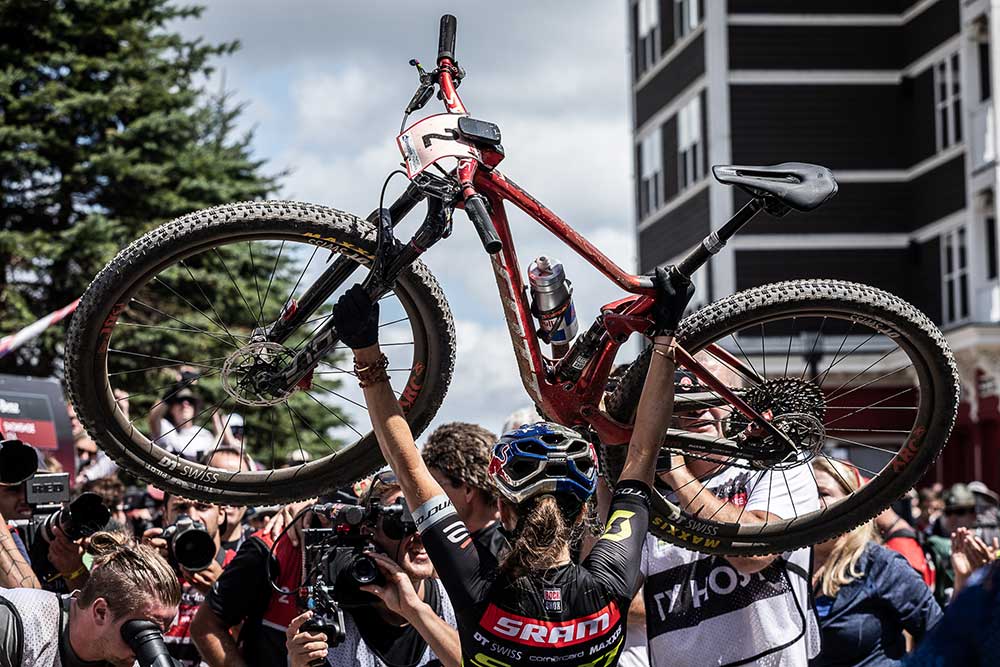
Courtney’s win on home turf in front of a home crowd is significant in more ways than one. It was exactly one year ago to the day that Courtney earned the rainbow jersey at the 2018 UCI Mountain Bike World Championships in Lenzerheide, Switzerland, becoming the first American to win that title in 17 years. This weekend, Courtney again made history as the first American to win the overall World Cup title since Alison Dunlap in 2002 (also 17 years ago).
As the dust settles on Snowshoe and riders return to their respective corners of the world, it’s not clear what the lasting impact will be on the four-season resort and the surrounding Pocahontas County. According to the Pocahontas County Convention and Visitors Bureau, the World Cup was predicted to bring over 10,000 visitors and anywhere from $1.5 to $2 million in economic impact.
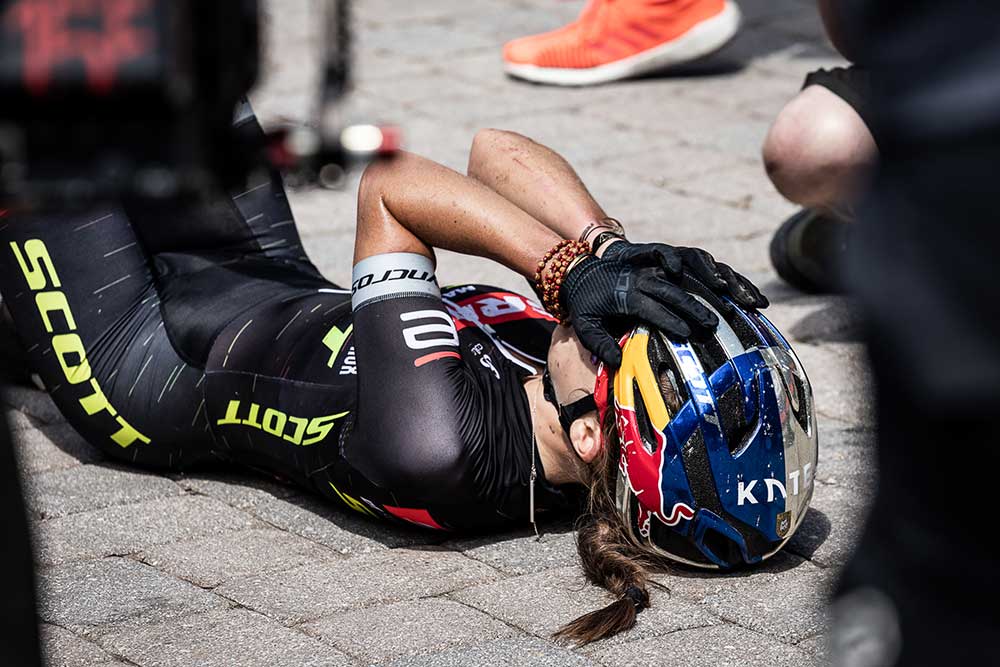
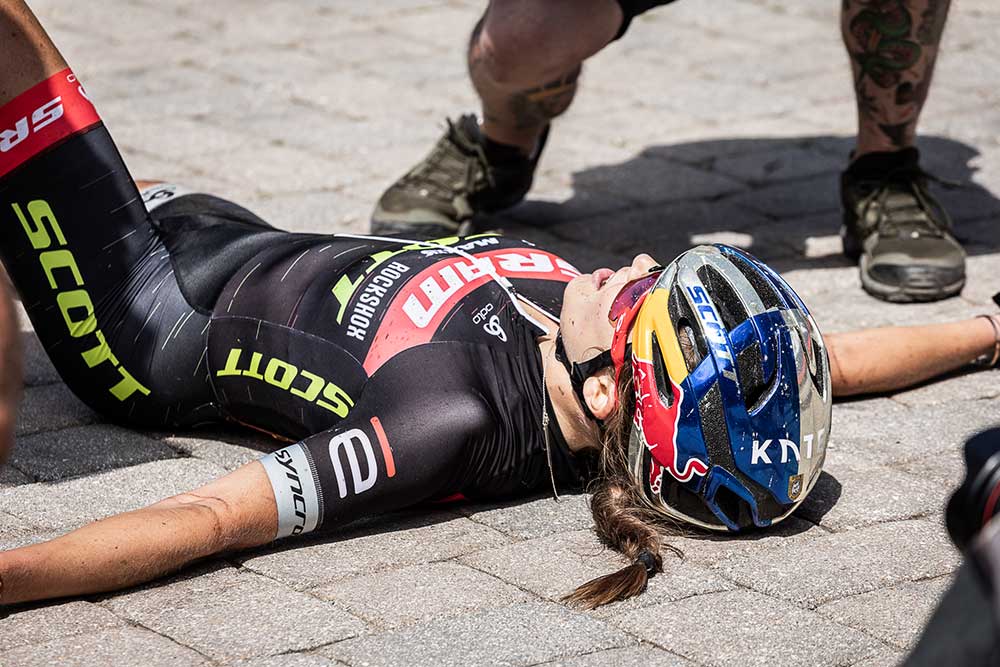
“Anytime you bring 10,000 people to a rural area like Pocahontas County, everybody benefits,” says Snowshoe Director of Risk and Business Services Preston Cline. “We expect a pretty significant trickle down effect. I think the community has embraced [the World Cup] better than they do skiing which is hard to believe since skiing is our major source of income for the county.”
That local support might be bolstered by the fact that the International Mountain Bike Association recently awarded a bronze-level Ride Center designation to the Snowshoe Highlands. The designation recognizes 300 miles of singletrack in the area, including the resort’s bike park and 11,000-acre backcountry trail system.
“This particular project really seemed to be a catalyst for understanding what tourism can bring to a community and how it can offer long term economic development,” says Pocahontas County CVB Executive Director Cara Rose of the IMBA designation. “It has really pulled us together and given us future goals to look forward to now.”
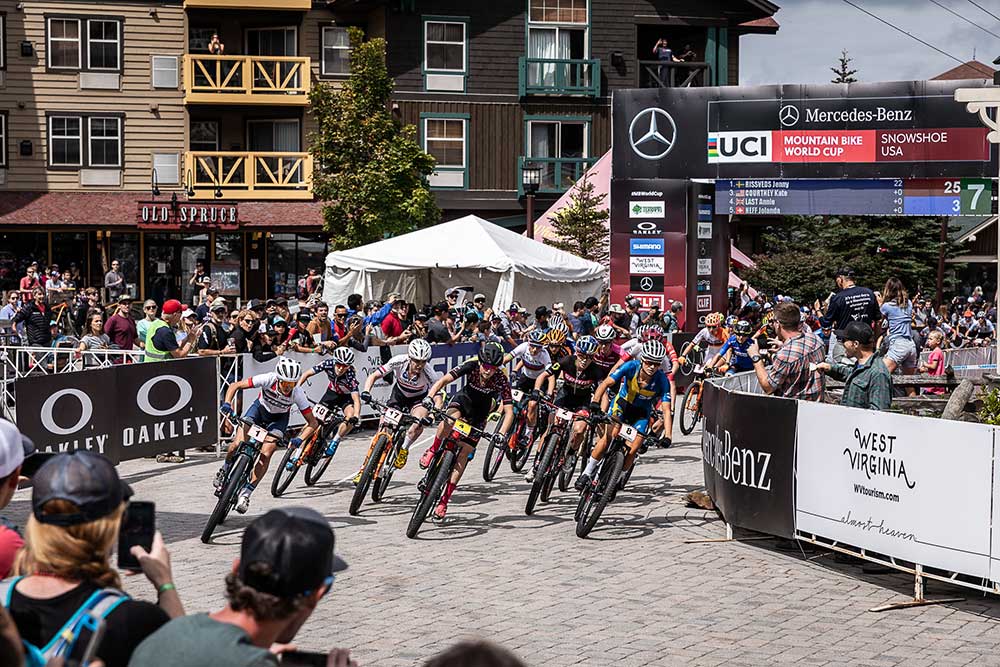
Eric Lindberg, president of Pocahontas Trails (the local IMBA chapter) and a Pocahontas County resident, agrees. He says mountain biking related tourism is good not only for the local economy but also for the trails in the remote and rugged Monongahela National Forest.
“All of this attention from the World Cup and Ride Center designation is getting the community to step up and better support the trails,” he says. “That attention forces the Forest Service and Snowshoe and the state parks to keep upping their game both for improving the quality of the trails and for putting in new trails. When Snowshoe hosted the NORBA [National Off Road Bicycle Association] series and the 24 Hours races, this place was big, then it started to fade away. I think we’re back on the upswing with renewed energy all around the area.”
